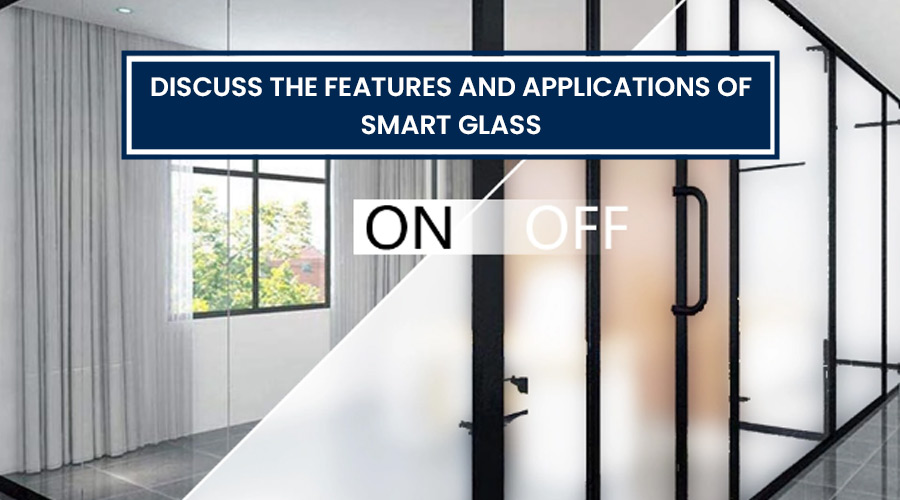Smart glass, also known as switchable glass or dynamic glass, is an innovative technology that can change its transparency and thermal properties in response to external conditions. It provides several features and applications that make it a versatile and sought-after material in various industries. Let’s discuss the features and applications of smart glass in more detail:
Features of Smart Glass
Transparency Control
Smart glass can switch between transparent and opaque states, allowing for privacy and light control. It can be instantly adjusted to provide clear views or to obscure the view by applying an electric current, changing the glass’s molecular structure, or employing other advanced technologies.
Thermal Control
Smart glass can regulate the amount of heat and light that enters a space. It can block infrared radiation and ultraviolet (UV) rays while still allowing visible light to pass through. This feature helps in reducing energy consumption by minimizing the need for heating, cooling, and artificial lighting.
Energy Efficiency
By controlling heat transfer and solar radiation, smart glass contributes to energy efficiency in buildings. It reduces the reliance on air conditioning and artificial lighting, resulting in lower energy costs and a smaller carbon footprint.
Noise Reduction
Some smart glass variants possess sound-insulating properties, reducing noise transmission between spaces. This feature is especially beneficial in environments where noise control is crucial, such as hospitals, conference rooms, and office buildings located in noisy areas.
Applications of Smart Glass
Architecture and Construction: Mart glass is widely used in the construction industry for windows, skylights, and facades. It enables occupants to control the amount of natural light entering a space while maintaining privacy. Additionally, it can contribute to sustainable building design by reducing energy consumption and optimizing indoor comfort.
Automotive Industry: Smart glass is employed in automobile windows, sunroofs, and rearview mirrors. It helps regulate cabin temperature, minimize glare, and enhance privacy. Moreover, it can dynamically adjust the level of tinting to protect passengers from harmful UV radiation.
Healthcare and Privacy: Smart glass finds applications in healthcare facilities, such as hospitals and clinics. It allows for privacy control in patient rooms, operating theaters, and consultation areas. With a flick of a switch, the glass can be instantly transformed from transparent to opaque, providing patients with both privacy and access to natural light.
Retail and Advertising: Smart glass is utilized in retail settings for storefronts, display cases, and interactive advertising. It enables the creation of visually striking displays and provides the flexibility to switch between opaque and transparent states for showcasing products or promotional messages.
Hospitality Industry: Smart glass is used in hotels, restaurants, and conference centers to create flexible spaces. Adjusting the transparency allows for the partitioning of areas to meet changing requirements for privacy or open floor plans.
Transportation: Smart glass technology is being explored for use in airplanes, trains, and ships. It can enhance passenger comfort by controlling light, reducing glare, and providing privacy. It also offers the potential for augmented reality displays on Windows, enabling passengers to access information or entertainment during their journey.
These are just a few examples of the features and applications of smart glass. As technology advances, we can expect to see even more creative and practical uses of this remarkable material in various industries.

